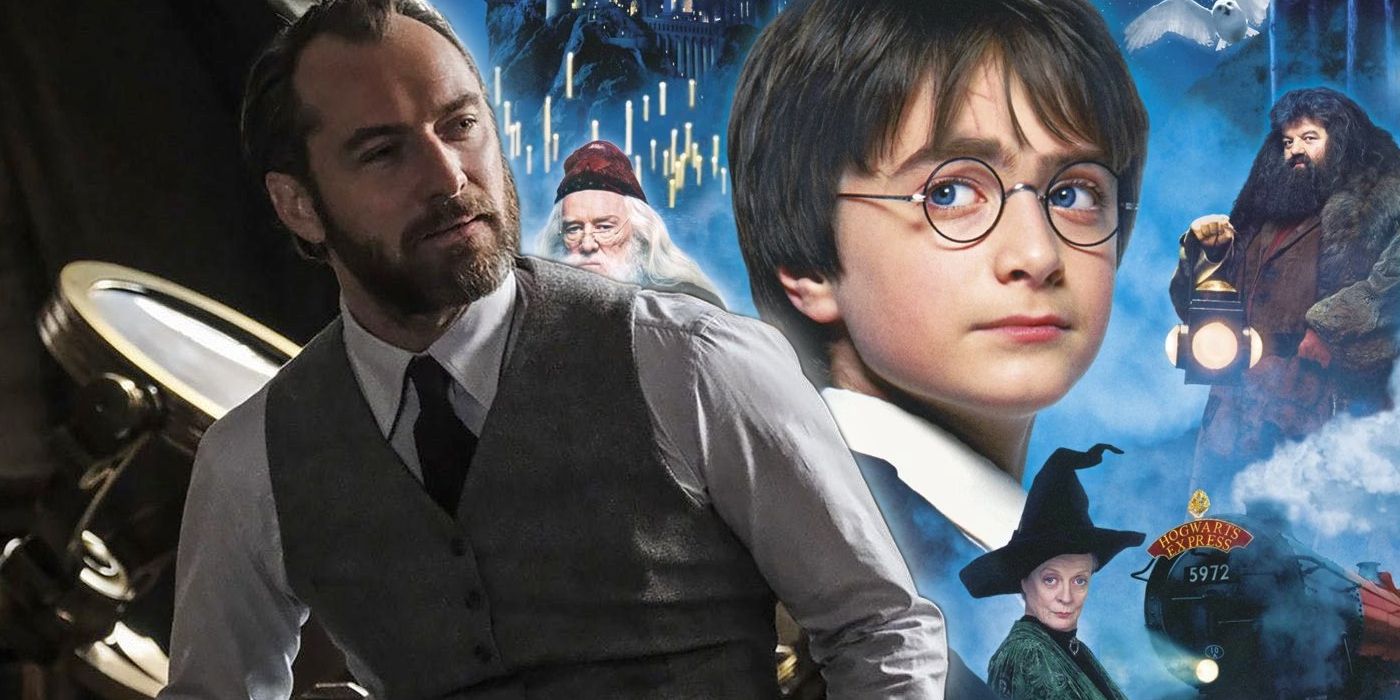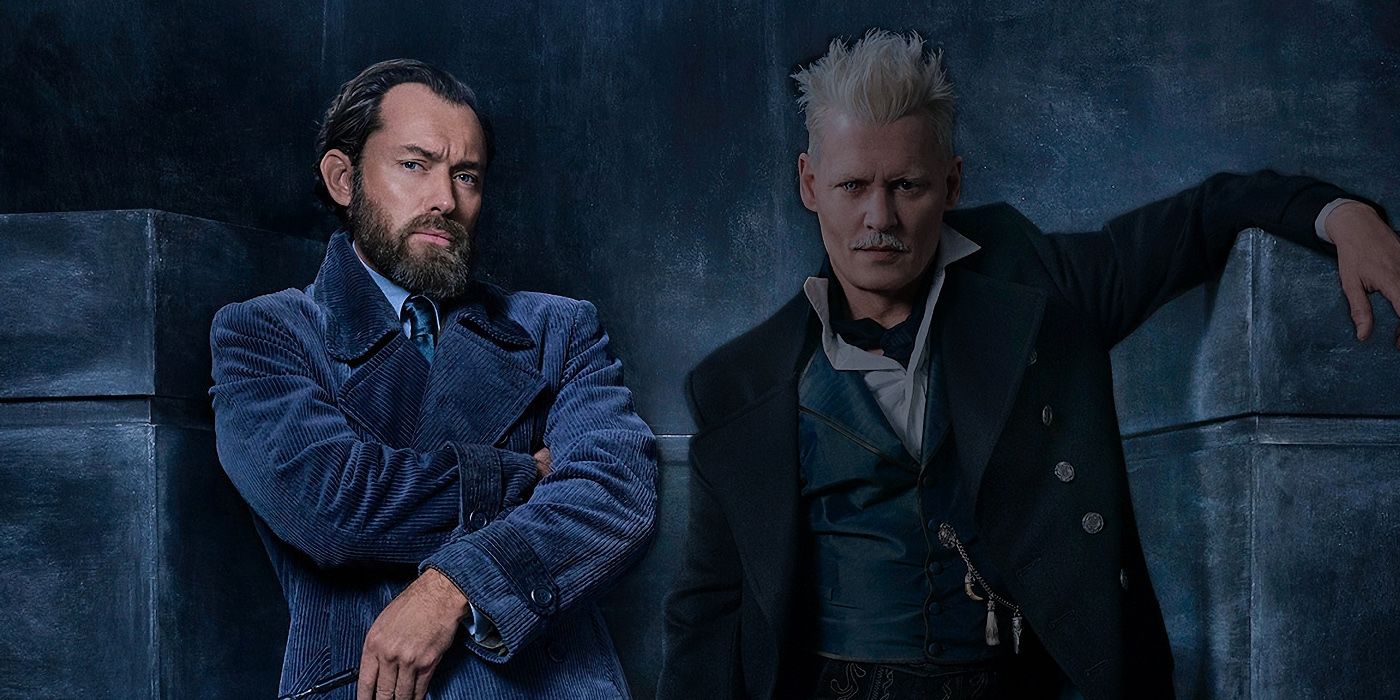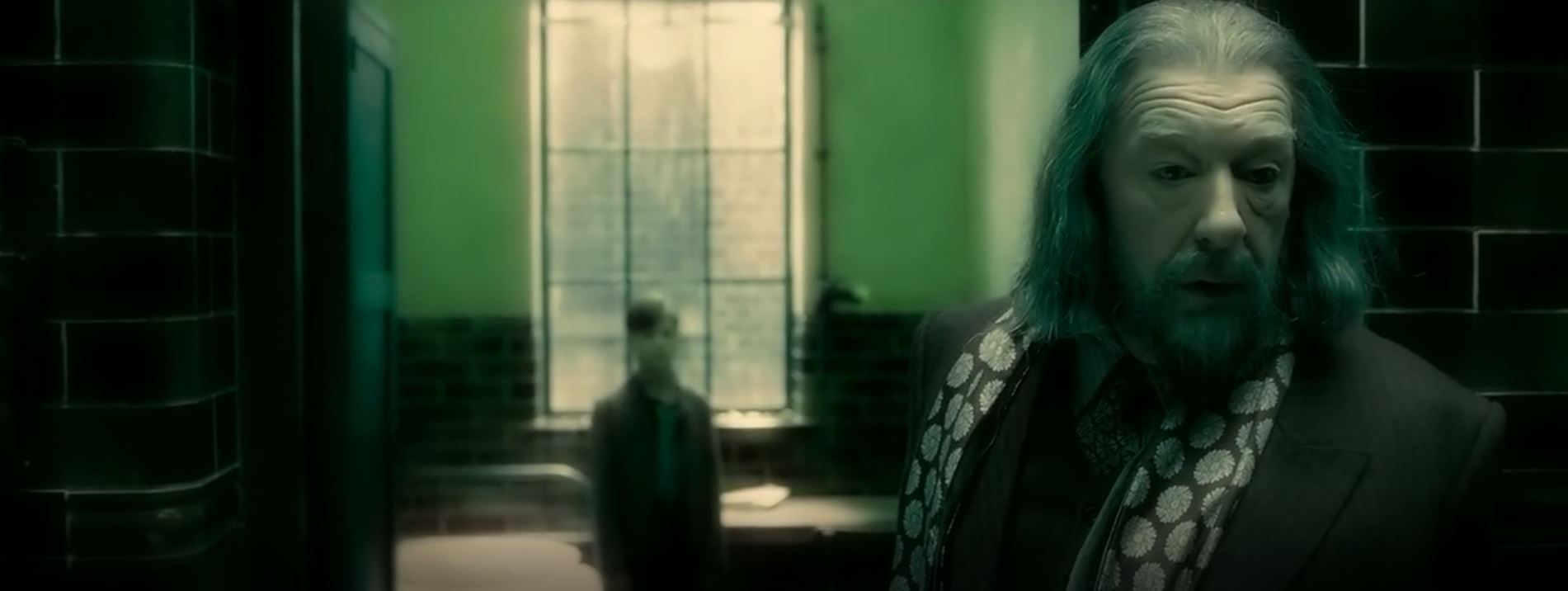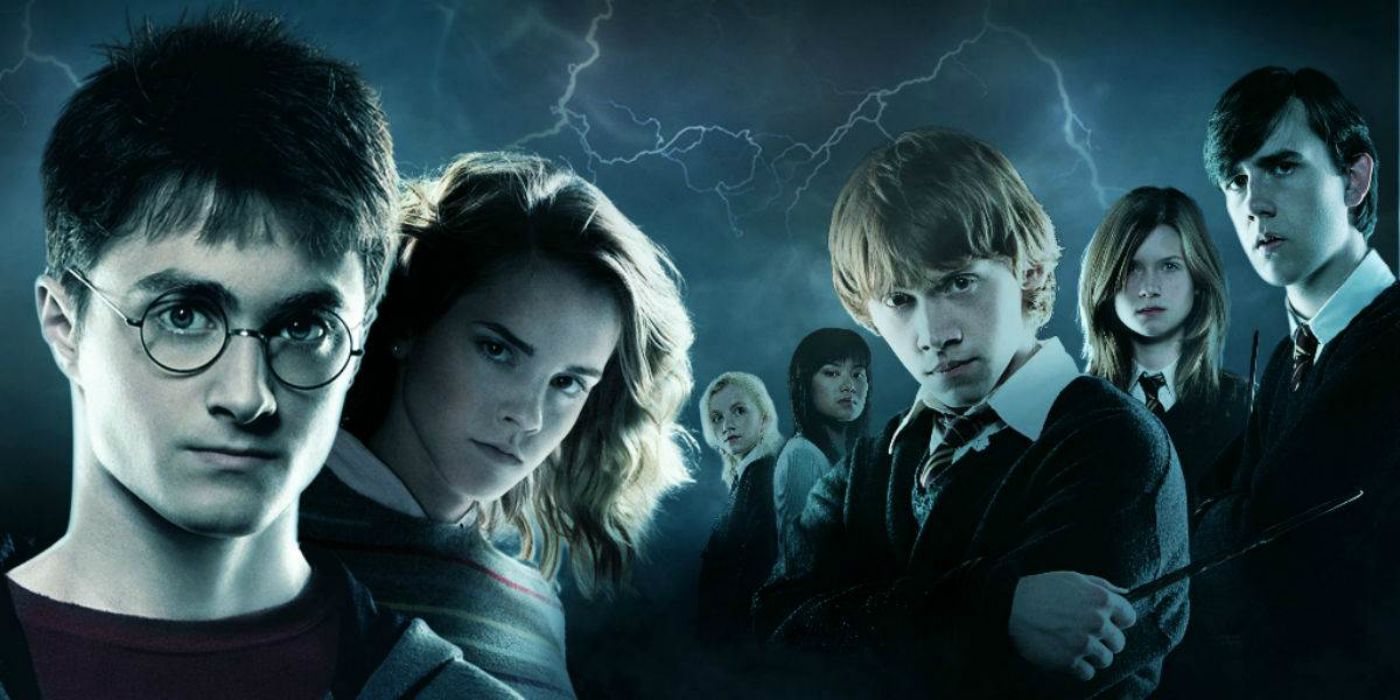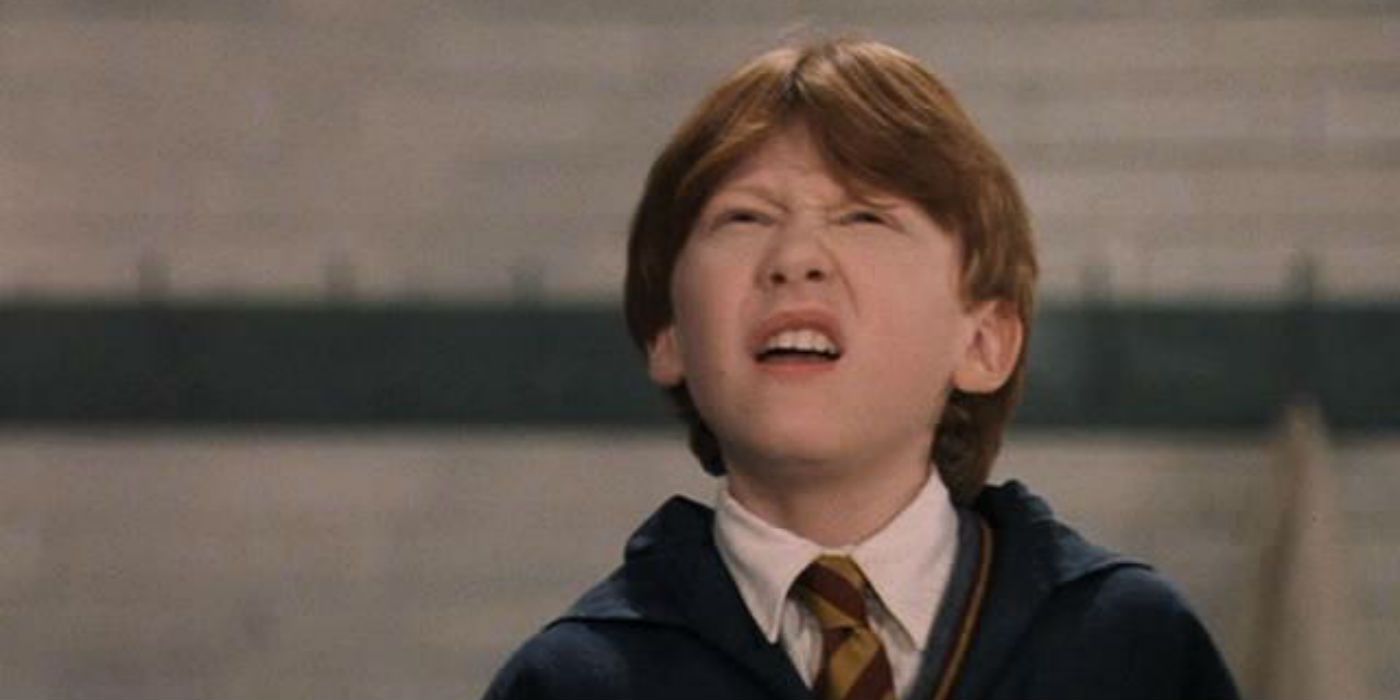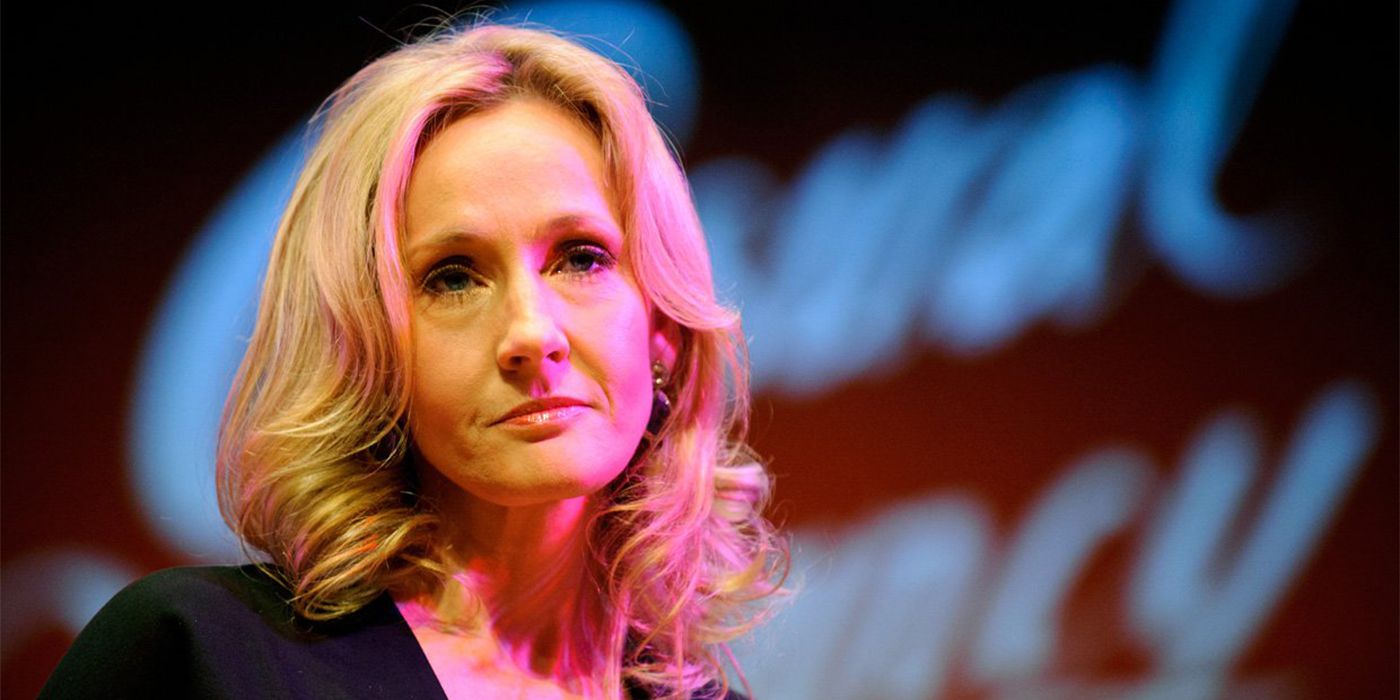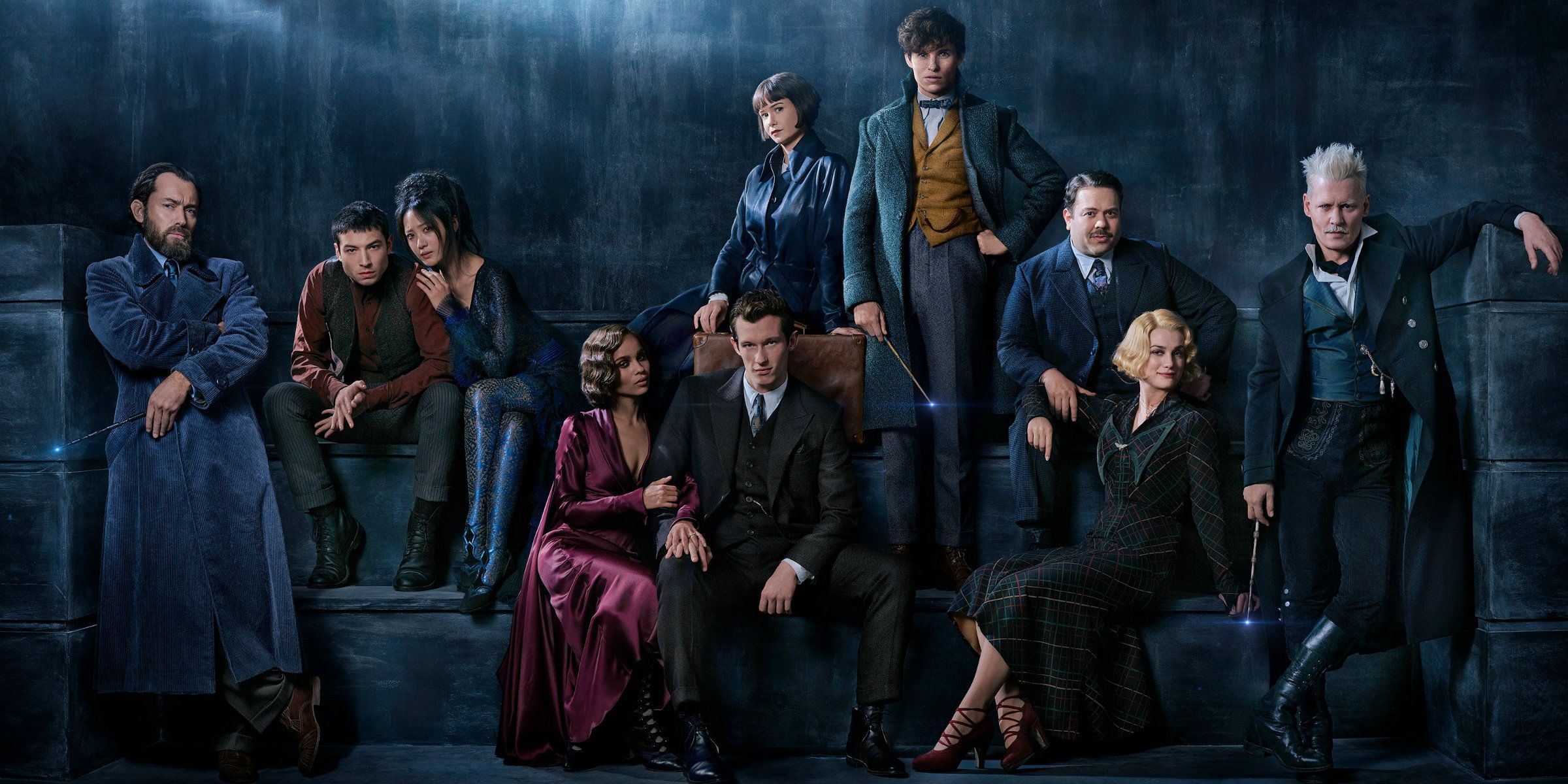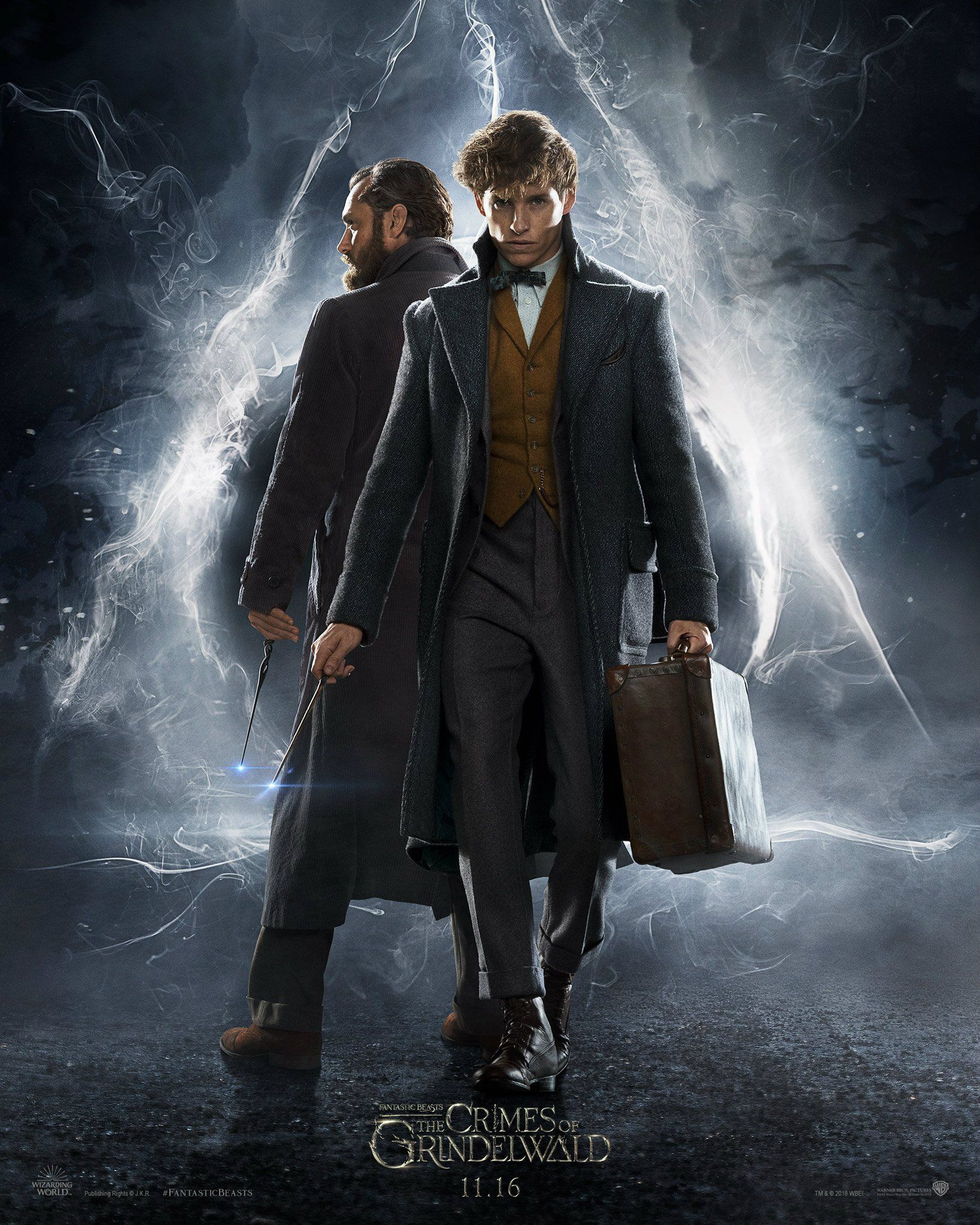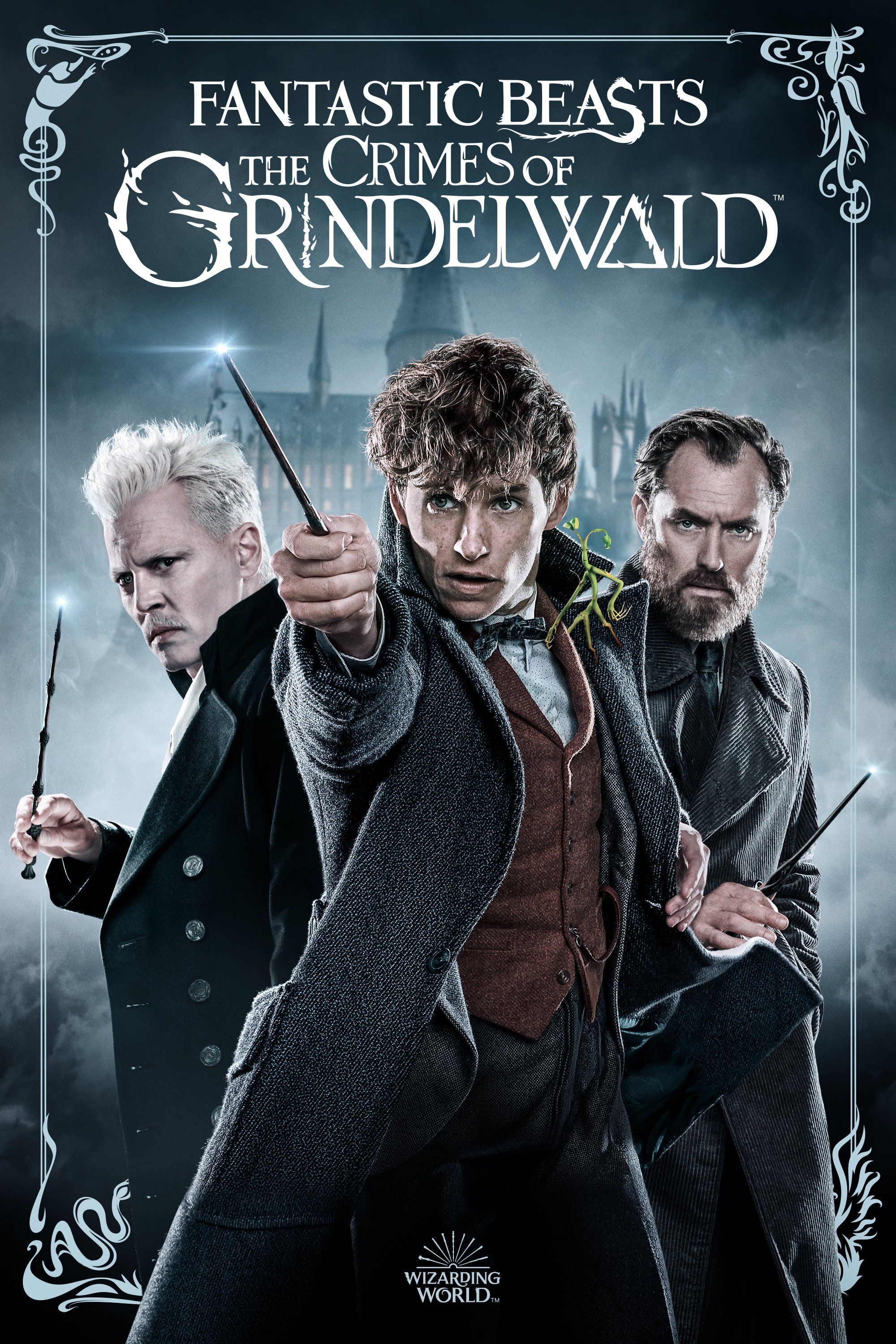Harry Potter has recently come under fire for problems with its representation, although the "not-so-gay Dumbledore" controversy is just the latest in a long line of problems with diversity. There's no doubt that Harry Potter is one of the biggest franchises of all time; the YA book series about a boy going to wizarding school became a worldwide sensation, spawning a huge fandom, eight films, an official play, and a whole new film franchise. Fantastic Beasts And Where To Find Them is set to be just the first of five features, all entirely new and exploring some of the early history of the characters we know and love - especially that of Dumbledore (Jude Law) and Grindelwald (Johnny Depp).
While many fans are thrilled at the idea of more films within the wizarding world, others are a bit more cynical, considering the creation of a second massive film series to be more about the money than the stories. However, author J.K. Rowling has long been a fan darling, so there was hope that with her at the helm (as screenwriter), Fantastic Beasts could continue the Harry Potter legacy. Sadly, it seems that this isn't happening, with multiple controversies marring the Fantastic Beasts franchise.
Related: Gellert Grindelwald's Greatest Crime Is Resurrecting Johnny Depp's Career
With some fans feeling betrayed over how both the new franchise and the author are dealing with diversity, this could mark a fall from grace for Rowling and the massive Harry Potter machine... but it's far from the first time that the wizarding world has handled diversity badly.
This Page: The Recent Fantastic Beast Controversies
Fantastic Beasts 2 Has Already Had Two Major Controversies
The new films are dealing with two major controversies; around the casting of Johnny Depp, and the sexuality of Dumbledore. Depp's casting as Grindelwald raised eyebrows after his ex-wife Amber Heard accused the actor of domestic abuse. When fans called for Depp to be dumped from the production, Rowling announced that he would be staying put, in a statement that raised eyebrows by those who felt that it defended Depp.
In addition to that storm, a new controversy broke last week when director David Yates said that the film wouldn't "explicitly" reference Dumbledore's sexuality. The original Harry Potter films also didn't reference the fact that Dumbledore is gay, but that was because this fact was only confirmed by Rowling in 2007, when it was too late to include it in the movies. Given that Fantastic Beasts 2 is centered on the relationship between Dumbledore and Grindelwald (a relationship that is most certainly romantic on Dumbledore's side, at least), though, fans assumed that his sexuality would be a big part of it. Rowling's response to the comments didn't help, either, as she tweeted that "none of the angry people" had read the script, and that it was "only one installment", hinting that Dumbledore may be more explicitly gay in future films; a carrot that the LGBTQ community wasn't too happy about having dangled in front of them.
The general response to both Yates's and Rowling's comments is that there's no reason to wait to make Dumbledore's sexuality explicit, and that it is past time for the Harry Potter franchise to step things up in terms of diversity.
A Lack Of LGBTQ Characters In The Franchise
Had Fantastic Beasts 2 actually included an openly gay Dumbledore, it would have been a milestone for the series, which is not exactly known for celebrating LGBTQ characters. Dumbledore himself was only revealed to be gay after a fan specifically asked Rowling about it, and nothing in the books or the films makes any reference to his sexuality at all. Some fans even believe that Rowling's comments were only made to placate fans, who were starting to comment on the lack of diversity in the series.
Related: What Actually Are The Crimes of Grindelwald?
Albus is also the only confirmed LGBTQ character who appears in the original film series, and although young Dumbledore had romantic feelings for Grindelwald, Rowling has not confirmed that Grindelwald was also gay - only that he was aware of his friends' feelings and used them to manipulate him. Several other characters within the original series have been speculated to be LGBTQ, largely because they fit several somewhat lazy stereotypes; Madame Hooch (Zoe Wanamaker) the cropped-haired Quidditch ref and flying teacher at Hogwarts, and Professor Sprout (Miriam Margolyes) the chubby Herbology Professor, are both often considered to be lesbians, for example. However, none of the characters are confirmed to be LGBTQ except for Dumbledore himself.
Harry Potter And The Cursed Child was also at the center of controversy for a lack of diversity when it comes to characters' sexuality, with fans accusing it of queerbaiting (using hints of LGBTQ storylines to attract queer readers/viewers, but not actually following through on those promises). The Albus/Scorpius relationship was at the center of this storm, with an intensity that pointed toward a romantic attraction, and even a comparison to the Snape/Lily relationship, but an official label as no more than "friendship". Now, with two Fantastic Beasts films confirmed to be without openly gay characters, that leaves the Harry Potter franchise with seven books, ten movies, a play, and an entire fictional universe in which only one character is actually gay (and we only know that from an interview).
The Wizarding World Is White
Of course, it's not only the lack of queer witches and wizards that raises eyebrows in the Harry Potter fandom; there is also a distinct lack of people of color. Now, there are a couple of PoC characters in the Harry Potter series to break up the overwhelmingly white wizarding world. However, these characters are all secondary characters: Cho Chang (Katie Leung) and the Patil sisters are the lone named Asian characters, and while Cho gets a small sub-plot as a love interest, the Patil sisters get only a line or two (although there is a little more attention paid to all three in the books). There are a few more black wizards, including Kingsley Shacklebolt (George Harris), Angelina Johnson (Tiana Benjamin), Dean Thomas (Alfred Enoch) and Lee Jordan (Luke Youngblood) - but again, these are all minor roles.
One fan broke down the dialogue in the films, and his figures show an estimated 99.53% of the dialogue across all eight films to be spoken by white characters. Given that data from the Institute of Race Relations estimated that in 2014, just over 87% of the population of the UK was white, this is far from an accurate portrayal of the racial makeup of the UK, let alone of a magical world that apparently exists without racism (except against the muggle-born).
Related: Fantastic Beasts: Every Harry Potter Easter Egg Explained
On a more positive note, The Cursed Child was on the other side of a controversy over race, with the London cast included Noma Dumezweni as Hermione - a casting choice that changed this central character's race from white to black. Rowling supported the change, and claimed that she didn't explicitly state that Hermione was white in the books. It was certainly refreshing to see The Cursed Child throw out preconceived notions of the main characters' races in order to add a little diversity to the show, but this still leaves the franchise as a whole predominantly filled with white lead characters.
Does The Wizarding World Have Religions?
For the majority of both the Harry Potter books and films, religion is not mentioned; Hogwarts has no religious services and with the exception of the churchyard in Godric's Hollow (which presumably means that the wizarding families buried there are some denomination of Christian), there are no religious buildings in the series either. Christmas is celebrated, but with a somewhat secular bent (and plenty of people who are not Christian do celebrate Christmas in some form). All in all, it seems that the wizarding world isn't a particularly religious one.
However, much the same way that Rowling outed Dumbledore after his role in the books and films was finished, the author has also retroactively added religious wizards to the Harry Potter universe. In a tweet response to a fan asking about Jewish wizards, Rowling named Anthony Goldstein as a Jewish wizard in Ravenclaw, and then continued to say that he is not the only one. It can also be assumed that the Patil sisters are Hindu, as Parvati is named after a Hindu goddess, but this is not specifically confirmed.
Rowling has also said that Hogwarts is a 'multifaith' school, although she does not see any Wiccans there (something that many Wiccans have taken offense at, unsurprisingly), and has not specifically mentioned any other religious groups. The film also does not show any witches wearing headcoverings, nor any witches or wizards observing fasts or prayer times. Yet again, it seems that Rowling claims there is diversity here, but will not show it.
Related: Hidden Harry Potter Messages J.K. Rowling Didn't Think You'd Noticed
Is Rowling Really A Champion Of Diversity?
Rowling has always been the recipient of a lot of fan goodwill, and has often been celebrated for championing diversity in interviews. However, this doesn't seem to translate to her actual works, which (as we have explored) are overwhelmingly filled with white, straight, and Christian characters. It seems that while Rowling continues to retroactively include minorities in her world, this is done with a very casual approach - one that has led to some wondering if it is just to placate her fans.
She seems to have an attitude that does not actively exclude anyone, but that simply doesn't see the important of actively including minorities. Her comments when outing Dumbledore were "I would have told you earlier if I had known it would make you so happy", which do suggest that she had always assumed him to be gay but that she doesn't understand how important it is to the LGBTQ community to have that stated outright, not just implied.
Harry Potter Needs Diversity To Be Fantastic
The big problem here is that at this point in time, it's no longer enough to simply acknowledge that minority characters are in a franchise after the fact, or to allow fans to "assume" that they are present. The original Harry Potter series, being written in the '90s and '00s, can be allowed a certain amount of leeway. The active inclusion of strong female characters, of hints at LGBTQ characters and several romantic leads that were PoC was relatively progressive at that point, and the overall message of the franchise (of bravery, inclusivity, and one heckuva metaphor for coming out of the closet) is still one that is needed today.
However, for the new films, the bar is simply higher. Fans are no longer comfortable with the idea that a character who is confirmed to be gay will only get to be "explicitly" gay in some future instalment (especially when there are multiple straight romantic pairings in every film). Retroactively waving a hand to allow for minority characters is not enough for Rowling to continue to consider herself a champion of diversity. This new franchise is a perfect vehicle to be truly inclusive (especially with the history of Ilvermony and Native American magic - another area where Rowling has already been criticized), but it needs to step up and become more actively supportive of minorities.
Fans shouldn't be shocked that Fantastic Beasts: The Crimes Of Grindelwald continues Harry Potter's legacy of ignoring diverse representation, but that doesn't meant that this should continue. It's time to see Harry Potter come into the present, even while exploring the wizarding world of the past.
Next: Eddie Redmayne Says Jude Law's Dumbledore is Perfect'

